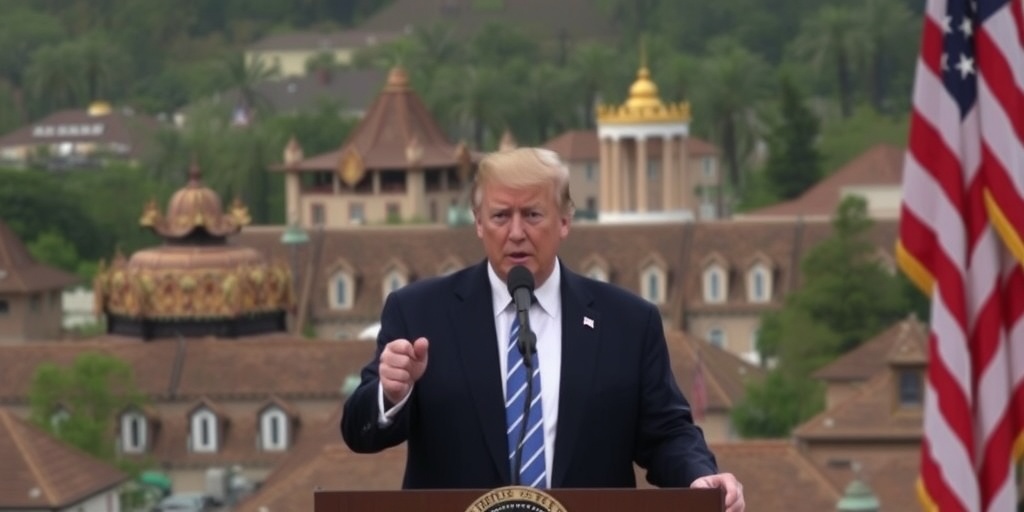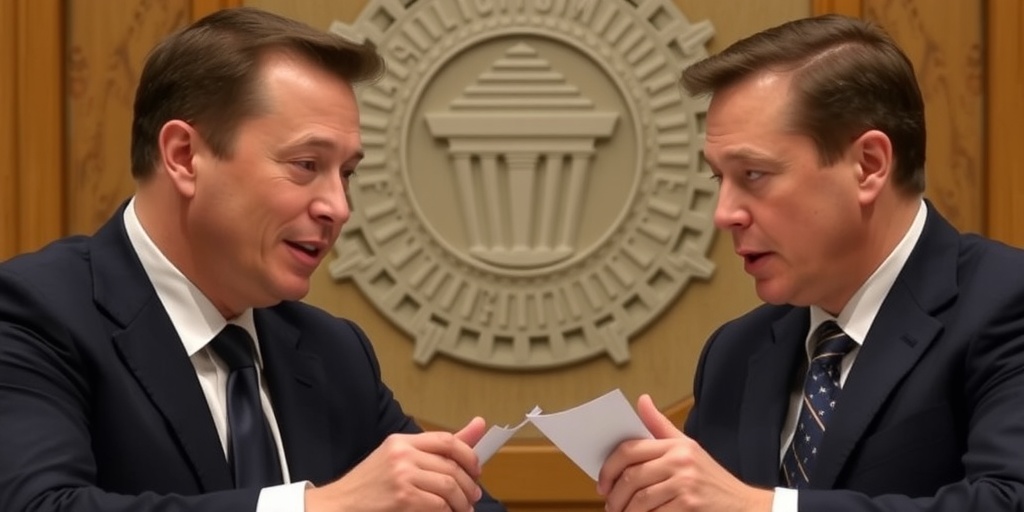Now Reading: CDC Deploys Disease Detectives to Texas Amid Measles Outbreak
-
01
CDC Deploys Disease Detectives to Texas Amid Measles Outbreak
CDC Deploys Disease Detectives to Texas Amid Measles Outbreak

Measles Outbreak in West Texas Sparks CDC Response Amid Growing Concerns
The ongoing measles outbreak in West Texas has prompted a federal response from the Centers for Disease Control and Prevention (CDC), which has dispatched a team of its "disease detectives" to assist local health officials. This move marks the first significant involvement of the Trump administration in addressing the public health crisis, highlighting a growing concern over the increase in measles cases, which culminated recently in a tragic child fatality — the first measles-related death in the United States in a decade.
The CDC made its announcement via its official account on social media platform X, revealing the extent of the outbreak and the collaborative efforts that are set to ensue. In the statement, Robert F. Kennedy Jr., the health secretary, acknowledged the seriousness of the situation and emphasized the importance of a coordinated response. He highlighted that the community must come together to tackle this public health issue by reinforcing commitments to vaccination and public health initiatives.
The CDC operates under the jurisdiction of state health authorities and cannot autonomously intervene in outbreaks. For any federal involvement to occur, the state health department must request assistance from the CDC. This collaboration, referred to as an Epi-Aid, is a rapid-response mechanism wherein Epidemic Intelligence Service Officers — often dubbed as "disease detectives" — provide expert support to local officials for a period ranging from one to three weeks.
In his statement, Kennedy urged a united front among parents, healthcare providers, community leaders, and government officials. He stated, “The measles outbreak in Texas is a call to action for all of us to reaffirm our commitment to public health. By working together, we can prevent future outbreaks and protect the health of our nation.” His comments reflect a broader call for vigilance as the nation grapples with the implications of rising vaccine hesitancy and misinformation.
Measles is known to be a highly contagious respiratory illness that can lead to severe complications, particularly in young children. The effective prevention of this virus hinges significantly on vaccination. The CDC emphasizes the importance of the measles-mumps-rubella (MMR) vaccine, which is typically administered in two doses during childhood. This vaccination protocol has been proven to prevent more than 97% of measles infections, thus playing a vital role in controlling outbreaks.
The recent outbreak underscores alarming trends in vaccine-preventable diseases, raising questions about public trust in vaccinations. The CDC and public health experts fervently advocate for vaccinations, particularly in light of the potential for serious health outcomes from diseases like measles. The resurgence of measles can be traced back to lower immunization rates in certain communities, often fueled by misinformation surrounding vaccines and a growing movement of vaccine hesitancy.
In response to these developments, local health officials in Texas have ramped up vaccination outreach efforts, aiming to educate the public about the safety and efficacy of vaccines. Community clinics and healthcare providers are working diligently to offer immunizations and disseminate information to alleviate fears and misconceptions surrounding the MMR vaccine.
As the investigation and response to the outbreak progresses, there remains a broader conversation about the role of public health in preventing future outbreaks. The collaboration between federal and state health agencies is critical in crafting effective strategies that focus on vaccination education, accessibility, and public health awareness campaigns.
The tragic death of a child due to measles serves as a stark reminder of the potential consequences of declining vaccination rates. Public health officials are urging communities to come together to reestablish vaccination as a societal norm and to protect vulnerable populations, including infants too young to be vaccinated and those with underlying health conditions that preclude vaccination.
As the CDC team begins its work in West Texas, many eyes will be on the response efforts and their effectiveness in curbing the outbreak. The importance of vaccines cannot be overstated — they are a cornerstone of public health that can save lives and prevent the return of diseases once thought to be eradicated. The current measles outbreak serves as a crucial point of reflection for the nation, emphasizing the need for a renewed commitment to vaccination and public health practices to safeguard the health of all citizens.
Stay Informed With the Latest & Most Important News
Previous Post
Next Post
-
 01New technology breakthrough has everyone talking right now
01New technology breakthrough has everyone talking right now -
 02Unbelievable life hack everyone needs to try today
02Unbelievable life hack everyone needs to try today -
 03Fascinating discovery found buried deep beneath the ocean
03Fascinating discovery found buried deep beneath the ocean -
 04Man invents genius device that solves everyday problems
04Man invents genius device that solves everyday problems -
 05Shocking discovery that changes what we know forever
05Shocking discovery that changes what we know forever -
 06Internet goes wild over celebrity’s unexpected fashion choice
06Internet goes wild over celebrity’s unexpected fashion choice -
 07Rare animal sighting stuns scientists and wildlife lovers
07Rare animal sighting stuns scientists and wildlife lovers





















